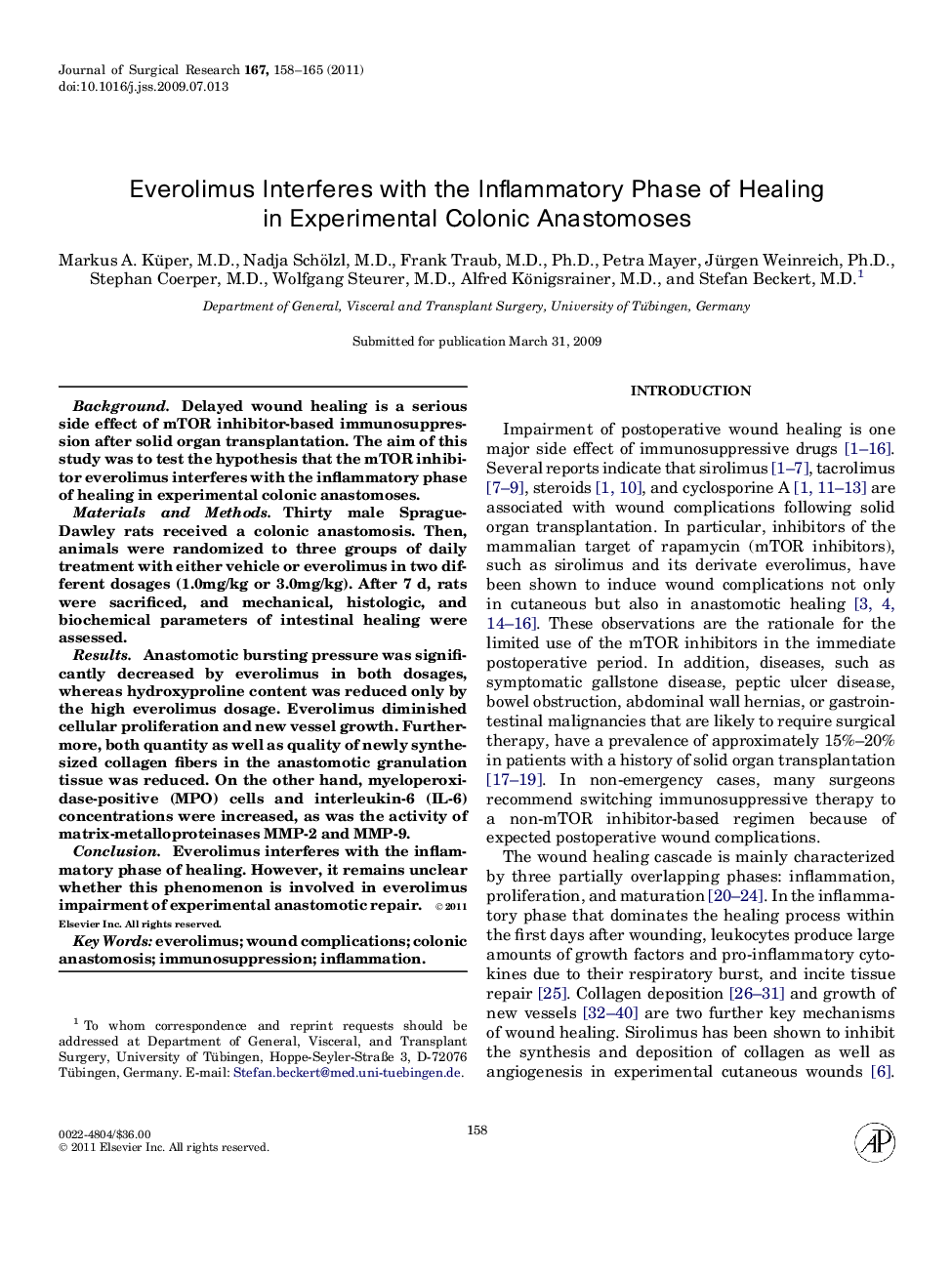| Article ID | Journal | Published Year | Pages | File Type |
|---|---|---|---|---|
| 4302845 | Journal of Surgical Research | 2011 | 8 Pages |
BackgroundDelayed wound healing is a serious side effect of mTOR inhibitor-based immunosuppression after solid organ transplantation. The aim of this study was to test the hypothesis that the mTOR inhibitor everolimus interferes with the inflammatory phase of healing in experimental colonic anastomoses.Materials and MethodsThirty male Sprague-Dawley rats received a colonic anastomosis. Then, animals were randomized to three groups of daily treatment with either vehicle or everolimus in two different dosages (1.0mg/kg or 3.0mg/kg). After 7 d, rats were sacrificed, and mechanical, histologic, and biochemical parameters of intestinal healing were assessed.ResultsAnastomotic bursting pressure was significantly decreased by everolimus in both dosages, whereas hydroxyproline content was reduced only by the high everolimus dosage. Everolimus diminished cellular proliferation and new vessel growth. Furthermore, both quantity as well as quality of newly synthesized collagen fibers in the anastomotic granulation tissue was reduced. On the other hand, myeloperoxidase-positive (MPO) cells and interleukin-6 (IL-6) concentrations were increased, as was the activity of matrix-metalloproteinases MMP-2 and MMP-9.ConclusionEverolimus interferes with the inflammatory phase of healing. However, it remains unclear whether this phenomenon is involved in everolimus impairment of experimental anastomotic repair.
